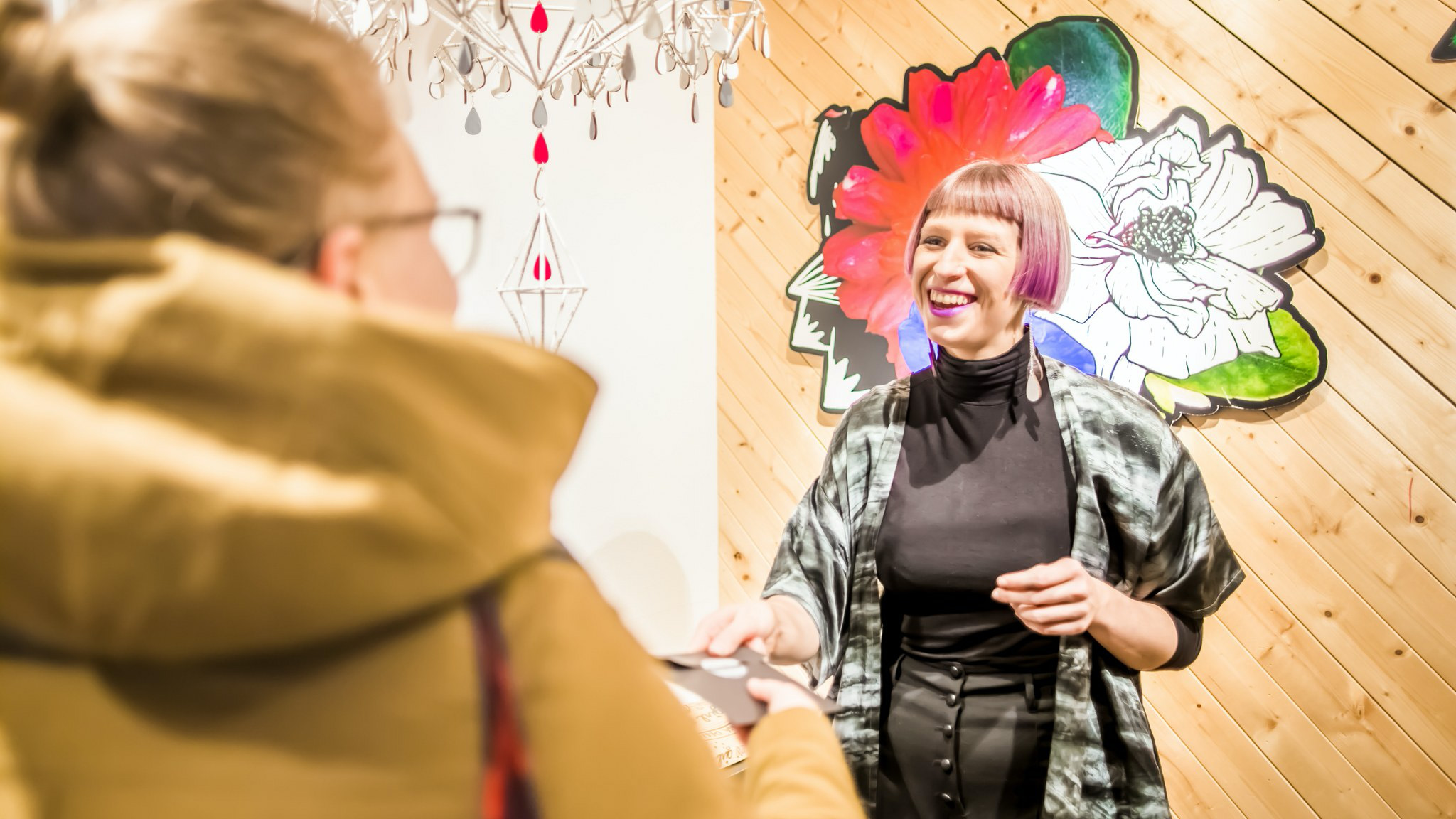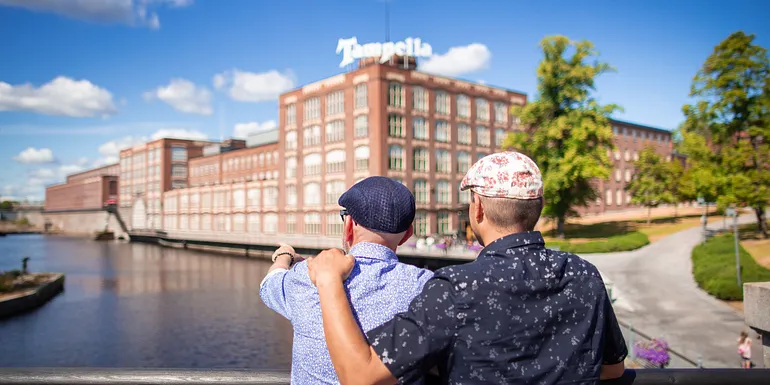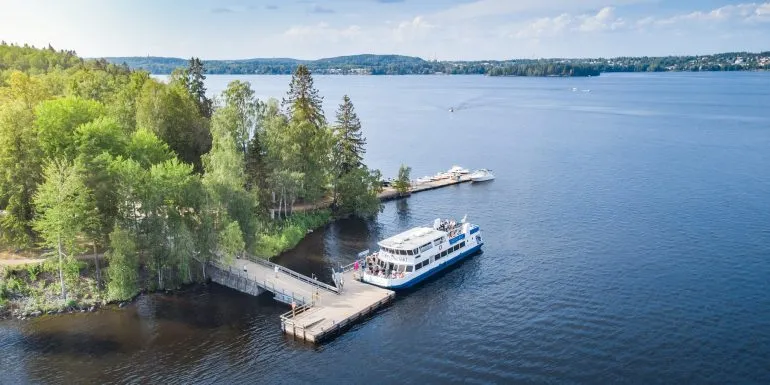Sustainable choices mean products and services which are better for the environment or have a smaller carbon footprint. Energy consumption, material flows and accessibility are a few important factors to consider when choosing a more sustainable shopping option.
“Energy consumption is one of the most important factors for shops’ carbon footprint. By switching to green electricity and heating, a business can reduce their carbon footprint,” says Demos Helsinki’s Senior Advisor Satu Lähteenoja.
Businesses can offer more sustainable shopping experiences for their customers by focusing on the production chains, materials, and product life cycles.
“Product selection tells a lot about sustainability: for example, products made of recycled materials are more sustainable options. Where a product is made matters, too. Interest towards domestic production has been growing, especially with clothing. Circular economy is another major trend in retail. In addition to selling products, shops can offer sharing and renting services for their customers,” says Lähteenoja.
Experience sustainable consumption in a new way at Miela
Miela is a conscious shopper’s paradise in the center of Tampere. A design store with a unique concept, Miela has a selection of over 70 Finnish design brands that ranges from clothes to accessories and home decoration. Complemented with a large secondhand section and a rental shop for designer styles and daily fashion, Miela covers the whole product life cycle when it comes to clothing.
“Miela has a new way of doing business: we do not just buy products in but we offer a marketplace for brands. We want our customers to enjoy the full life cycle of a garment: at Miela, you can sell used clothes and accessories, buy new ones or rent clothes as a member or a one-time customer,” describes Ariela Perä-Rouhu, one of the founders of Miela.
Sustainability is in the core of Miela and it’s also an important value for its founders and staff. “At first, Miela’s sustainability was about focusing solely on Finnish brands, since they are often produced in an ethical and eco-friendly way,” Perä-Rouhu says. “Our customers appreciate that Miela and the brands that we represent are transparent. That way they know they made a sustainable choice by shopping at Miela. It was great to see that Miela ticked all the boxes for Think Sustainably criteria already from the beginning.”
On the ground floor, there is a constantly changing selection of Finnish brands for women, men, and kids. One floor up, Miela Preloved is a carefully curated second-hand department, where customers can sell their pre-owned treasures. Third floor is designated for Vaatepuu, where clothing and accessories are for rent.
Renting and sharing are ways to get new clothes for a smaller carbon footprint. Miela’s customers have embraced the second-hand section and the clothing rental department.
“New and used complement each other: you can find a used handbag to go with a new shirt. At Vaatepuu, you can experiment with designer items without buying them. In the future, Miela could offer also other concepts for sustainable consumption,” Perä-Rouhu says.
Tempting retail stores and artisanal design
An eco-conscious shopper considers the product life cycle and chooses long-lasting materials. On the other hand, choosing small enterprises and shops, benefits local communities.
DesignOnTampere helps you discover small tempting retail stores Tampere. You can find all the interesting shops, galleries, and restaurants on the map. Founded by Tampere-based designers, DesignOnTampere is also an association that promotes design and city culture in Tampere.
Tampere-based design brand Uhana is known for its gorgeous flower patterns and silk dresses. At Uhana, sustainability is demonstrated by transparent clothing production, high quality, and long-lasting materials and by being a responsible employee, the designer duo Mira Vanttaja and Hanna Virkamäki describe on Uhana’s website. Uhana’s products are available at their Tampere’s flagship store, as well as in Helsinki store and the online shop.
Artisanal design has long traditions in Tampere area. A good way to get to know area’s artisanal designers is Modus, Pirkanmaa design and industrial art society, that lists Pirkanmaa region artisanal professionals on their website. Modus promotes high quality and sustainable artisanal design locally and globally.
Let’s recycle!
Re-using and recycling products are both significant factors for carbon footprint. That’s why flea markets and vintage stores are gems for many, also for ecological reasons.
Tampere is a dream destination for a vintage shopper or a person looking for pre-owned treasures. There is a huge selection from high-end fashion to retro both for adults and kids. Check out these flea markets and vintage shops:
Kodin Kakkonen
Kyttälän kirppis
Merkitys 2nd Hand Shop
Nevana second hand
OLDIE
Utelias soppi – Lasten kirppis
Lastenkirppis Into
Äijäkirppis Lualamiäs
Tampereen kivoimmat kirpputorit
Parhaat vintage-liikkeet Tampereella
Local delicacies, treats and crafts
A sustainable choice means often local or domestic produced goods. Even though locally produced are not always more environmentally friendly than imported products, supporting local producers is an act of social sustainability.
Market halls are great places to discover local foods and entrepreneurs’ selections in Finland or abroad. With over 30 merchants, Tampere market hall is the biggest market hall in the Nordics known for its quality restaurants and cafes.
Check out other tempting shopping options in Tampere:
 Map
Map


